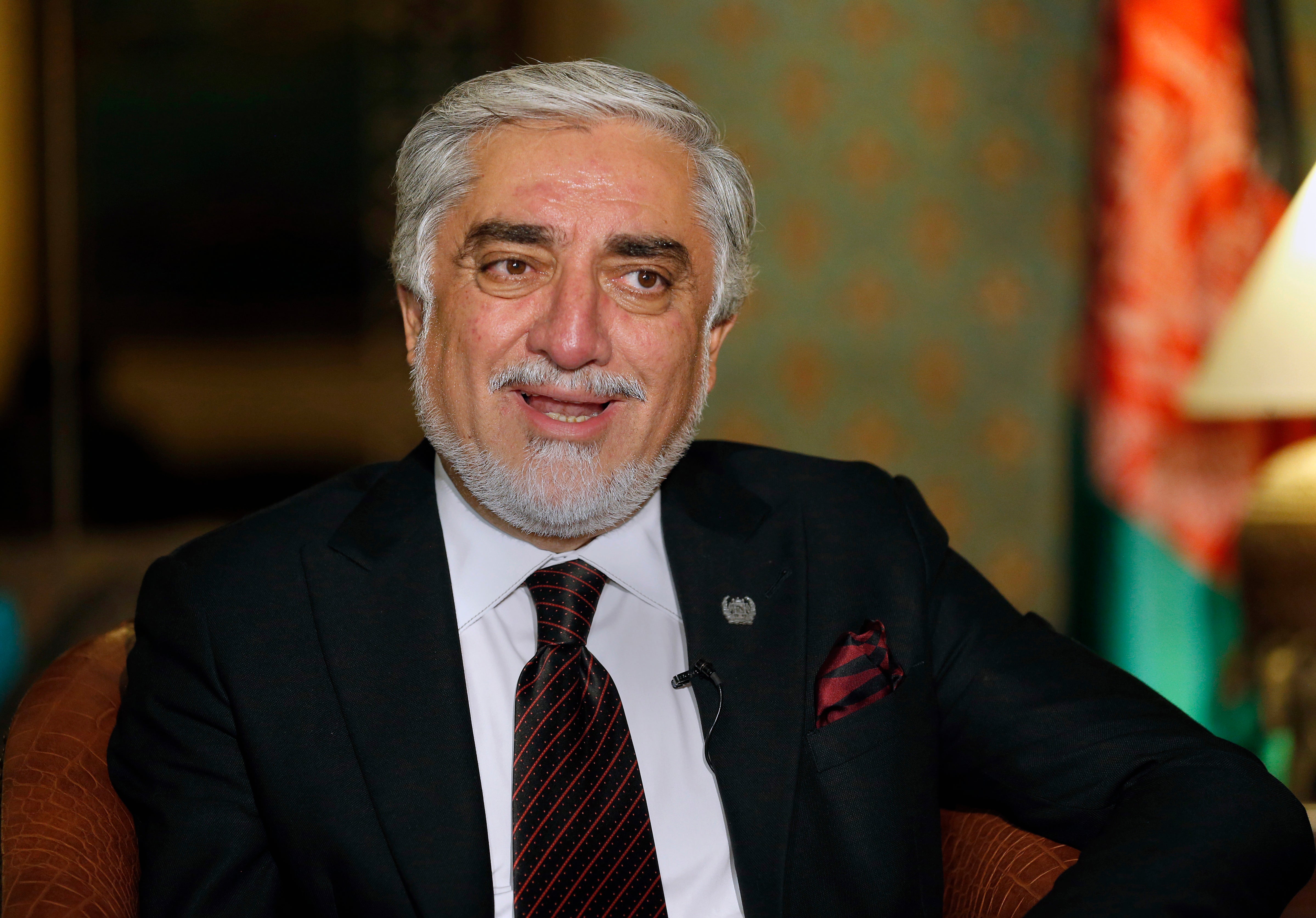Afghan envoy asks Pakistan to push Taliban to less violence
Afghanistan's chief peace envoy Abdullah Abdullah has ended a three-day visit to Pakistan

Your support helps us to tell the story
From reproductive rights to climate change to Big Tech, The Independent is on the ground when the story is developing. Whether it's investigating the financials of Elon Musk's pro-Trump PAC or producing our latest documentary, 'The A Word', which shines a light on the American women fighting for reproductive rights, we know how important it is to parse out the facts from the messaging.
At such a critical moment in US history, we need reporters on the ground. Your donation allows us to keep sending journalists to speak to both sides of the story.
The Independent is trusted by Americans across the entire political spectrum. And unlike many other quality news outlets, we choose not to lock Americans out of our reporting and analysis with paywalls. We believe quality journalism should be available to everyone, paid for by those who can afford it.
Your support makes all the difference.Afghanistan’s chief peace envoy Abdullah Abdullah ended a three-day visit to Pakistan on Wednesday optimistic the uneasy neighbors have turned a corner from a relationship marked by suspicion and downright hostility toward a partnership for peace in the region.
In an interview in the Pakistani capital, Abdullah said he asked Pakistan’s powerful military to use its influence to press the Taliban into a reduction of violence, which could be seen as a first indication the two neighbors share the same goal of peace.
Abdullah's first visit to Pakistan in 12 years comes at a crucial time for Afghanistan as government negotiators sit across the table from the Taliban in the Middle Eastern State of Qatar to plot a future course for a post-war Afghanistan.
As chief of Afghanistan's High Council for National Reconciliation, Abdullah oversees the government side in negotiations. His visit to Pakistan was seen as particularly significant because of the ties the Taliban have with Pakistan, especially with the powerful military, which is largely responsible for the country’s Afghan policy.
Abdullah said he has asked not just Pakistan, but Washington and every other country that has a voice at the Afghan table, to press for a reduction of violence with the Taliban. Still, for most Afghans Pakistan is seen as having the greatest leverage with the Taliban, whose ruling council is widely thought to be headquartered in southwestern Baluchistan.
“It’s in their best interest of peace to encourage the Taliban (but) if cease-fire today, for example, is too heavy a word for the Taliban let us talk together to find what can we do so that people see that there are changes in the security environment,” Abdullah said, referring to a reduction in violence.
“It is time (for the Taliban) to show some practical signs of their commitment for peace. ... Why are they not giving the people a chance to breathe and to see that things are happening?”
Pakistan has been applauded by Washington and Kabul for its role in getting the Taliban to the peace table, first in direct talks with the United States, which resulted in an agreement that led to the so-called intra-Afghan negotiations now underway in Doha.
In meetings with Abdullah, Pakistan Prime Minister Imran Khan loudly endorsed a peaceful end to Afghanistan's relentless wars and also called for a reduction in violence by all sides in the conflict, a welcome call, said Abdullah.
Still, for many Afghans, Pakistan is viewed with deep mistrust, blamed for a resurgence of the Taliban after their defeat by the U.S.-led coalition in 2001 by giving the religious insurgents a safe haven from which to operate.
Pakistan is seen by many in Afghanistan as wanting to keep the Taliban as possible leverage against influence in Afghanistan by its long-time enemy India, which has been critical of any post-war government in Afghanistan that includes the Taliban.
Abdullah, however, who shared power in Afghanistan's last government as chief executive and before that as foreign minister, said he was encouraged by the tone of conversations in Pakistan.
The conversations centered around peace and Abdullah said the improvements in relations and in perceptions of each other as good neighbors will come with time and actions, including messages from Pakistan to the Taliban to embrace the current negotiations underway in Doha.
He has asked Pakistan “to send the right message to all sides but mainly to the Taliban that this is the right time to make genuine efforts for achieving peace, to ‘be flexible’ be ready, be determined (and) know that there is no other way. ... This will be the right thing at this stage."